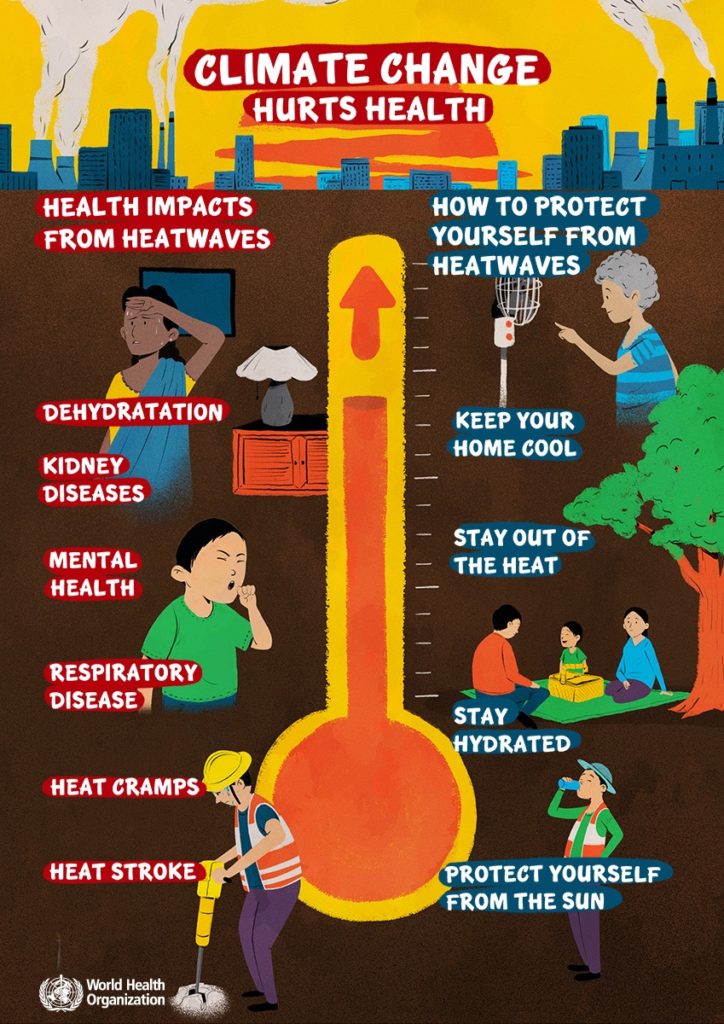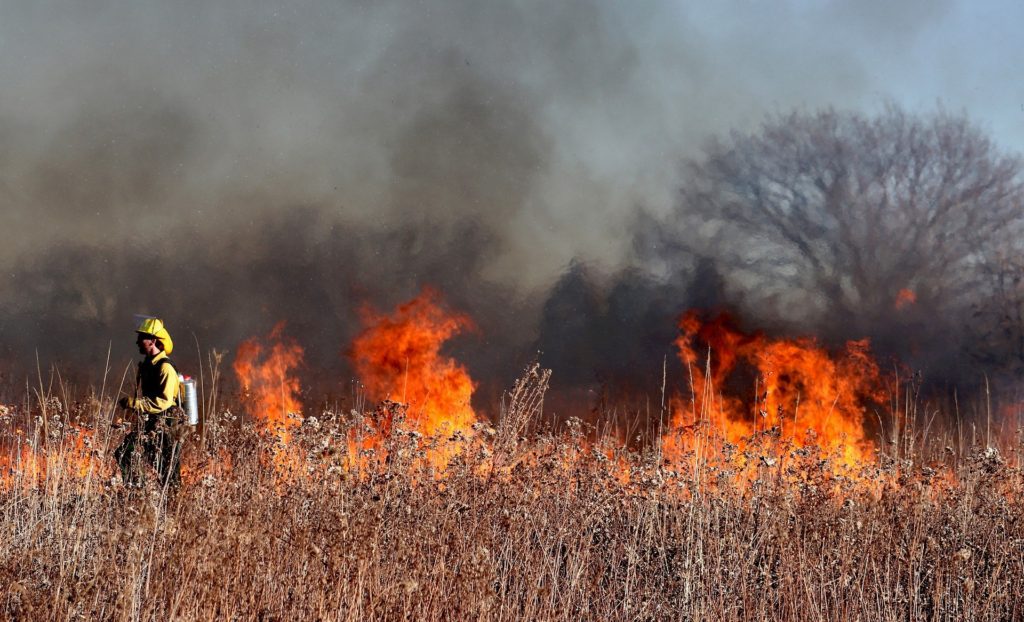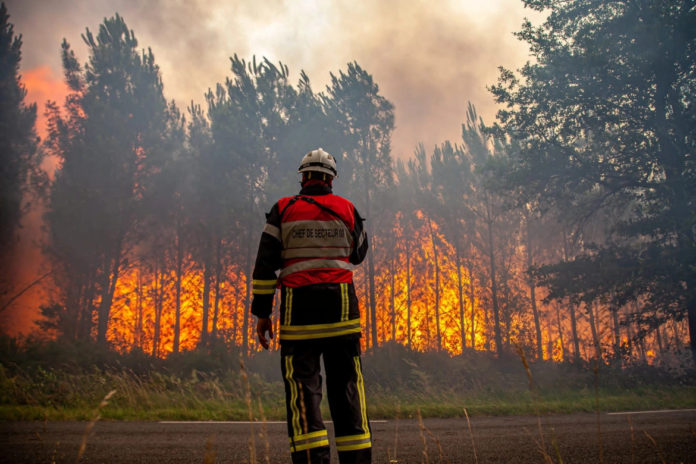1. PREAMBLE
1.1 There is a common saying that women, work and weather are unpredictable in Europe and these factors may change anytime without warning. While European nations have mostly overcome the deleterious impacts of such negativities, the developing world is still struggling to conserve the natural environment. However, at the present, Planet Earth is experiencing overall perhaps the worst ever environmental degradation; climate change has engulfed mother earth on inter and intra sectorial basis. The severity of climate change is manifest by global warming encompassing rising temperatures of land, water and air.
1.2 Meteorological data reveal that summers in Europe mostly remained mild, comfortable and bearable. The winters are traditionally very cold and at times quite hard. However, European countries have come across severe heat waves starting late June and well into the second/third week of July 2022; this was totally unexpected and people were not prepared physically and mentally to meet such an emergency. On the other hand, most countries in Asia, Africa and Australia are familiar with heatwaves and confront them quite often.
2. BRUTAL HEATWAVE
The year 2013 saw a prolonged heat wave in many European countries. In 2018 a similar heat wave had gripped much of Europe that experienced above average temperatures and drought which resulted in wildfires in Sweden and Greece. On August 11, 2021 the highest temperature of 48.8 degrees C was recorded on an island in Italy. Many countries have announced deaths due to heatwave calamity. The details of heatwave instances in certain European countries are given below:
2.1 United Kingdom (UK)
2.1.1 The UK hit its highest ever temperature of 40.3C, according to provisional Met Office figures, and forecasters warned temperatures were still climbing.
2.1.2 Urban fires have broken out throughout London. This is having serious impact on domestic and social life, public services, infrastructure and transportation.
2.1.3 People are finding it harder to concentrate on basic functions. It is a known fact that weather reduces cognitive functions leading to decreased productivity, errors of judgment, harmful effects on mental health, increased risk of workplace injury and rising crime.
2.1.4 Temperature of 40.3°C was recorded at CONINGLY in Eastern England.
2.1.5 National emergency has been declared. The Met Office issued its first red extreme heat warning across a large part of England. UK is bracing for the ‘blowtorch’ heat wave. Legal protection is required against high temperatures in workplaces covering occupational health and safety matters.
2.1.6 Tropic-Hell
The UK had seen its hottest day on record on 19 July 2022, with temperatures of 43°C. People have been advised against non-essential travel. A high of 38.1°C was recorded in Suffolk, short of the UK record of 38.7°C in 2019. It is said that Tropic-Hell Tuesday (July 26, 2022) could see more sizzling heat with meteorologists warning the extreme heat ‘poses a danger to life.”
2.2 France

2.2.1 Heat waves commenced on June 2022 and continued into July 2022 with temperatures rising to 39°C in Southern France on 12 July 2022. National forecaster Météo France placed 12 departments in southeastern France under an Orange Warning for high temperatures.
2.2.2 The heat wave was generated by nexus of high pressure in Morocco, France and British Isles. This scenario brings hot air from south of the Mediterranean.
2.3 Spain
Spain came across an exceptional heat wave since its history observing temperature of 43.3°C in CANDELEDA and 42.4°C in SEVILLE. Forecast of 46°C in BADAJOZ and 45°C in SEVILLE was made for the period 13 to 15 July 2022.
2.4 Portugal
High temperatures of 44°C caused wildfires and smoke clouds in Lisbon on 16-17 July 2022. A forecast of 44°C was announced for EVORA while temperature of 47°C was recorded on 14 July 2022 in PINHAO.
3. IMPACT OF HEATWAVE
3.1 Reduced Cognitive Function
Cognitive Function includes intellectual activities like thinking, reasoning,
remembering and attention. Categories of Cognitive Function are knowledge,
comprehension, applications, analysis, synthesis and evaluation. The deleterious
effects of Reduced Cognitive Function are given below:
3.1.1 Effect of high temperature on Performance in Occupational
Environment is obvious when employees meet such unusual events. There is
consistent decrease in performance of occupants.
3.1.2 This decline in mental function is not restricted to corporate staff. This is
observed in educational institutions where performance of students and teachers in learning and delivering is reduced significantly.
3.1.3 The prolonged exposure to sun rays may impact mental faculties.
3.2 Hyperthermia
Working in high temperatures causes hyperthermia; a rise in internal body
temperature and may trigger physical exhaustion. Heat wave affects intellectual faculties in subtle ways by slowing the brain’s processing speed and rendering it harder to make correct decisions.

3.3 Impact on Mental Health Irritability
3.3.1 Irritability
People start feeling more irritable on hot days. It has been seen that extreme heat negatively affects mental health.
3.3.2 Depressive and Anxiety Symptoms
Heatwaves and other extreme events such as floods and fires have been linked to a rise in depressive symptoms in people. Anxiety symptoms are developed in those facing such disorder. High temperatures increase in manic episodes in people with bipolar disorder.
3.3.3 Neurological Conditions
Warmer body temperatures are a serious problem for people with neurological conditions. They require maintaining body temperature to be able tolerate heat like other people.
3.4 Water Supply System
Wasting water may risk shortage of water supply. Irresponsible water use during blistering heat waves usually results in delayed water treatment to keep up with demand. Users should avoid the employment of sprinklers, hosepipes and large inflatable pools.
3.5 Care of Aged Citizens
People have been urged to look after elderly neighbours and senior citizens in the extreme heat situation. A surge in medical demand usually appears, a catastrophe of climate change.
3.6 Colossal Death Rate
So far the current heat waves have resulted in the undermentioned loss of lives:
Spain – 1876
Germany – 1636
Portugal – 1063
UK – 13
4. CAUSES OF HEATWAVE
Significant causes for sudden development of heat waves are:
4.1 High Pressure System
It normally originates for Spain and then spreads towards north, center and south Europe.
4.2 Arctic Region
The Arctic region is undergoing severe climate change leading to increase in temperature.
4.3 Wildfires
Instances of wildfires in Portugal, UK and other European countries increased significantly both in remote areas and urban localities. A few instances are quoted in the following:
4.3.1 Wildfires destroyed homes in UK as the country contended with record-high temperatures. Scores of major incidents were witnessed by fire brigades as blazes broke out in the 40°C plus heat wave.
4.3.2 It was the busiest day for the London Fire Brigade since the World War-II. It received more than 2,600 calls on Tuesday (12 July 2022), seven times the usual number. 41 properties were destroyed by fires in the city.
4.3.3 UK will need to learn dealing with wildfires, as the number recorded this year is double than that of 2021. On Tuesday (12 July 2022) there were 420 fires in England and Wales since beginning of the year.
4.3.4 Conditions were ripe for wildfires as temperatures reached a new record high of 40.3°C.
4.3.5 The fire risk was extreme, with record-breaking temperatures accompanied by low relative humidity and long spell without rain. This can lead to extreme fire behaviour with fast-spreading fires burning with high intensity. It is difficult to manage.
4.3.6 These types of fires are known as Wildfire Urban Interface fires. Usually in the UK large wildfires are confined to relatively remote areas.
4.3.7 These kinds of fires are extremely devastating with impacts on structures, communities, wildlife and life safety.

4.3.8 Prevention of Wildfires
• It is planned to reduce the effects of wildfires using engineering and ecological techniques. Actions of individuals will be the key to managing the risks presented by these fires.
• Prevention measures include training volunteer and part-time teams on how to tackle wildfires.
• People may be required by law to create a buffer zone around their homes that is free of debris and vegetation to stop fires spreading.
• Disposable containers need to be banned to reduce the risk of wildfires.
• Open spaces are required to be covered with vegetation or dampness to spread fires.
5. RECOMMENDATIONS
In view of the foregoing discussion following recommendations are made to avert an emergency situation created by heatwaves:
5.1 Wildfires need to be prevented and controlled.
5.2 The infrastructure should be protected against adverse impacts of Climate Change.
5.3 Women and children need extra care against rising temperature.
5.4 The quantity and quality of firefighting equipment should be well maintained.
5.5 Heatwaves are one of the Divine Tests and Tribulations – the people of a faith should seek the Divine forgiveness and relief.
5.6 Avoid using flammable households.
5.7 Dwellings should have optimum level of ventilation
5.8 Occupational health and safety measure including medical care should be implemented against the heatwaves.
5.9 Heat stroke centers should be established in workplaces and institutions.
BIBLLIOGRAPHY
• Hussain, M., 1998, Environmental Degradation: Realities and Remedies, Ferozsons (Pvt) Ltd, Lahore, Pakistan.
• Hussain, M., 1995, Moholiati Aloodgi, Ferozsons (Pvt) Ltd, Lahore, Pakistan.
• Hussain, M., (2021), Islam and Environment, Vol-I & II, The Environ Publications, Lahore (Pakistan)
• https://drive.google.com/file/d/0B9kHqDDK6NaXSlJ2WnZkcnFtZFE/view




